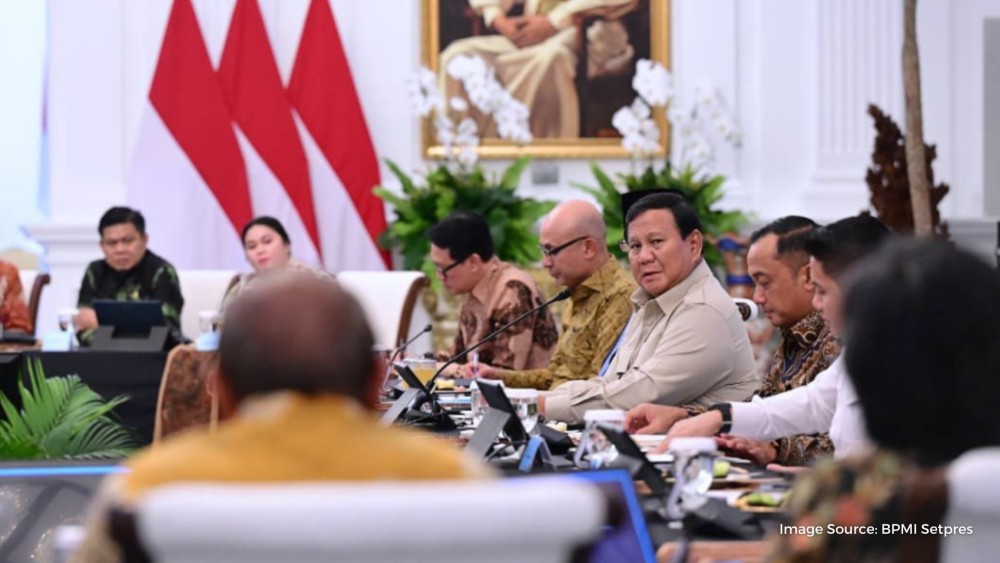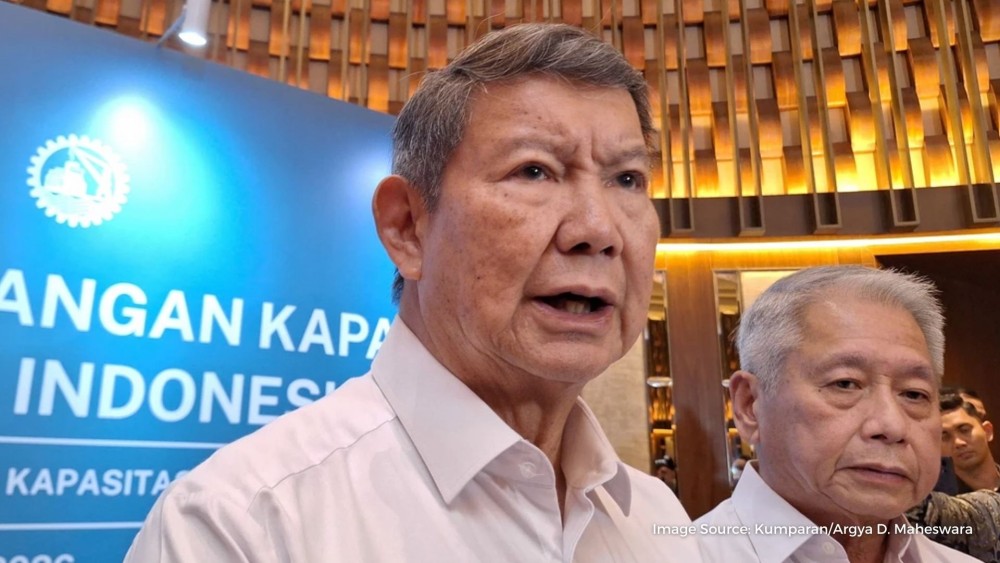Indonesia is walking the carbon capture talk
27 Mar 2024

In early 2024, the Ministry of Energy and Mineral Resources (ESDM) revealed that Indonesia boasts a national carbon storage potential of 572 gigatons of CO2 in saline aquifers and an additional 4.85 gigatons in depleted oil and gas reservoirs for the year's Carbon Capture and Storage (CCS) initiatives.
Late 2023 data from the Coordinating Ministry for Maritime Affairs and Investment highlighted that Indonesia's CO2 emissions storage capacity could sustain the nation for 322 to 482 years, considering an expected peak of 1.2 gigatons of CO2 equivalent (CO2eq) by 2030. This considerable capacity plays a crucial role in supporting Indonesia's ambitious long-term emission reduction goals.
Recently, we are witnessing the nation taking concrete steps in achieving those targets, namely through the issuance of government regulations on CCS, the establishment of a successful CCS project in East Kalimantan, and the development of Carbon Capture Utilization and Storage (CCUS) projects across Indonesia.
Governmental regulations concerning CCS
In late January 2024, the government passed Presidential Regulation No. 14/2024 on the Implementation of Carbon Capture and Storage Activities. This regulation marks a significant milestone towards achieving Indonesia's net-zero emission targets, as stated by the Ministry of Energy and Mineral Resources in a press release.
Following this development, discussions emerged among Indonesian legal experts regarding the necessity for businesses in the CCS sector to consider four key legal frameworks, namely:
-
Presidential Regulation No.98/2021 on the Implementation of Carbon Economic Value for Achieving Nationally Determined Contribution Targets and Reducing Greenhouse Gas Emissions in National Development
-
Minister of Energy and Mineral Resources Regulation No.2/2023 concerning the Implementation of CCS and CCUS in Upstream Oil and Gas Business Activities
-
Presidential Regulation No. 14/2024 on the Implementation of CCS Activities
-
Work Procedure Guideline No.PTK-070/SKKIA0000/2024/59 SKK Migas on the Implementation of CCS and CCUS in the Working Area of the Cooperation Contractor.
These discussions underline the expansive approach of Presidential Regulation No. 14/2024. CCS, as stipulated in Presidential Regulation No. 14/2024, is not limited to the upstream oil and gas industry. It can also be applied to non-oil and gas sectors such as steel, glass, and smelter industries.
The regulation also paves the way for cross-border CCS initiatives, with Indonesia aiming to become a regional CCS hub. The first international collaboration is the February 15 agreement between Indonesia and Singapore, which established a commitment to formalize a cross-border CO2 transportation and storage arrangement.
With the aim of further incentivizing CCS projects, the Indonesian government is preparing additional implementing regulations. This legislative framework is expected to bolster legal certainty for CCS operations and position Indonesia as a global leader in carbon storage.
East Kalimantan as the pioneer of carbon utilization
Aside from regulations, Indonesia has had successful endeavors in carbon management, specifically the innovative Land-Based Greenhouse Gas Emission Reduction Program in East Kalimantan. The program was facilitated by the World Bank’s Forest Carbon Partnership Facility (FCPF) scheme, a global partnership dedicated to reducing emissions from deforestation and forest degradation, widely known as REDD+.
This initiative has positioned Indonesia as the first nation within the East Asia Pacific region to secure payments from the FCPF, capturing 13.5 percent of the emissions reduction value as reported in the Government of Indonesia's Monitoring Report for the 2019-2020 period.
As part of the agreement, Indonesia stands to receive up to US$110 million (approximately Rp1.6 trillion) for verified reductions in emissions. An initial payment of US$20.9 million, equivalent to 4.1 tons of CO2eq, was awarded to the Ministry of Environment and Forestry alongside the East Kalimantan Government on October 10, 2022. Currently, an additional 17.8 million tons of CO2eq in excess emission reductions are undergoing the process of verification and validation to receive further incentives.
This program, combined with the regional government's strategies for economic advancement, has significantly contributed to the fiscal health of East Kalimantan. The region's budget witnessed a substantial leap from Rp46.89 trillion in 2022 to Rp76.65 trillion in 2023, outpacing several areas within Java, Indonesia's most populous island.
The success story of East Kalimantan not only underscores the tangible benefits of carbon utilization efforts in Indonesia, but also signals a market ripe with opportunities for further exploration and development.
Ongoing CCS/CCUS project in Indonesia
At the forefront of Indonesia's efforts to become a global leader in carbon storage is the Tangguh CCUS project, spearheaded by British Petroleum (BP), a leading multinational oil and gas corporation. Situated in the Bintuni Bay of West Papua, this project is slated to operate (onstream) between 2026 and 2027. According to SKK Migas, Indonesia's special task force for oil and gas, BP's projections indicate that merely 2 percent of its total storage capacity will be utilized over a 30-year period of CO2 injection starting from 2026 or 2027.
Meanwhile, PT Pertamina (Persero), Indonesia's state-owned oil and natural gas corporation, is also advancing its CCS initiatives. This includes a collaboration with ExxonMobil focused on the Asri and Sunda Basins, located west of the Java Sea. The envisioned CCS Hub aims to leverage saline aquifers capable of housing at least 3 gigatons of CO2, targeting emissions from the region's carbon-intensive industries.
These initiatives, along with governmental regulations supporting CCS, underscore Indonesia's strategic steps to become an international hub for carbon storage. This opens up interesting opportunities for investment and participation in Indonesia's carbon storage market.








